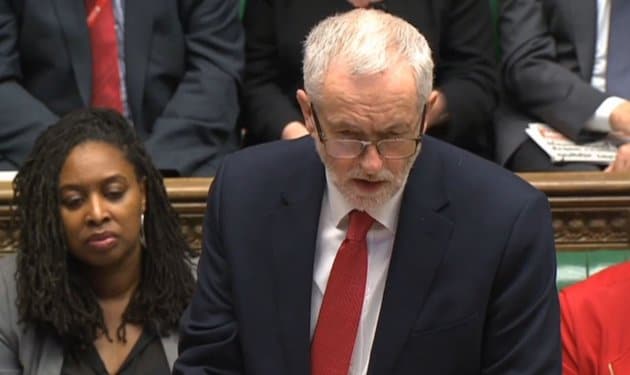In politics you can learn a lot about someone’s basic orientation by asking: to whom do they habitually extend the assumption of good or bad faith?
We all have our own content for these categories. For example, in my case bad faith can usually be assumed on the part of Donald Trump, and good faith accorded to Vox.com.
Which takes me to this matter of Jeremy Corbyn, the leader of the opposition Labour Party and Russia.
Last week, Corbyn responded to Prime Minister Theresa May’s statement that Russia may be behind an “unlawful use of force”, with the nerve agent attack on former Russian spy Sergei Skripal and his daughter in southern England. The Labour leader held back from criticism of the Kremlin or Russian officials, holding open the possibility that someone else might be responsible.
On a purely factual level, I don’t think he’s wrong on either of his main points: It *is* conceivable that this assassination attempt came with Russian state complicity at lower level than a Putin order. And it *would* be reckless – or pointless – to talk like we consider this an act of war when we have zero follow-through to match that level of rhetoric. Indeed, on this bare factual level, his statements haven’t been all that different from Theresa May’s.
I think the reason people have reacted so strongly against Corbyn in this one instance is because they see that his approach here fits a broader pattern that in a Prime Minister would be significant. That is, he seems determined to accord the government of Russia the same presumption of good faith you would give to a friendly, or at least neutral, power. They don’t merit that, and it reflects either wilful naivety or stubborn ingrained habit on Corbyn’s part to persist in believing that they do. I suspect that in turn has its roots in so many years prioritizing (sometimes merited) scepticism of US policy that didn’t involve thinking too hard about one’s bedfellows in that enterprise.
Is Russia lying about what it knows about this Salisbury attack? I strongly suspect so. And its reaction to the accusation – one part mockery, one part threats – is not what a country sincerely keen to establish the facts and confirm its innocence would do.
But no, I’m not certain. What I *do* know is that Putin and his government are liars: habitual, grand-scale, at this point almost performatively so. These are the kind of people who send a ground army to annex a neighbouring country’s territory, then flatly deny it. They kill enemies of the state and regime in assassination-esque ways all the time, including in the UK. And the substance used indicate that whoever did it might as well have left a Kremlin compliments slip tucked in the victims’ lapels. The burden of establishing innocence *obviously* lies with the Russian Government — they know it, and their acting as though that isn’t the case is transparently trollish performance art.
Even someone who is keen not to outrun the evidence or start an escalating confrontation we won’t win should be according Putin right now about the same level of good faith that they would grant a drug kingpin found in the car park of a warehouse full of heroin and Kalashnikovs, smirking in the interview room as his lawyer asserts he knows nothing about any of it.
Here’s the thing, Jeremy. If certain other countries appeared to be involved in something half as sinister as murder by chemical weapon on British soil, we both know what you’d think, and how much good faith you’d accord them. If you want my confidence that your thinking isn’t clouded when it comes to Russia, show me that you see them clearly. If more people believed that you did, then your hedging about any single event wouldn’t be such a big deal.
Because people would trust your judgement when it comes to the big picture. And that matters.

